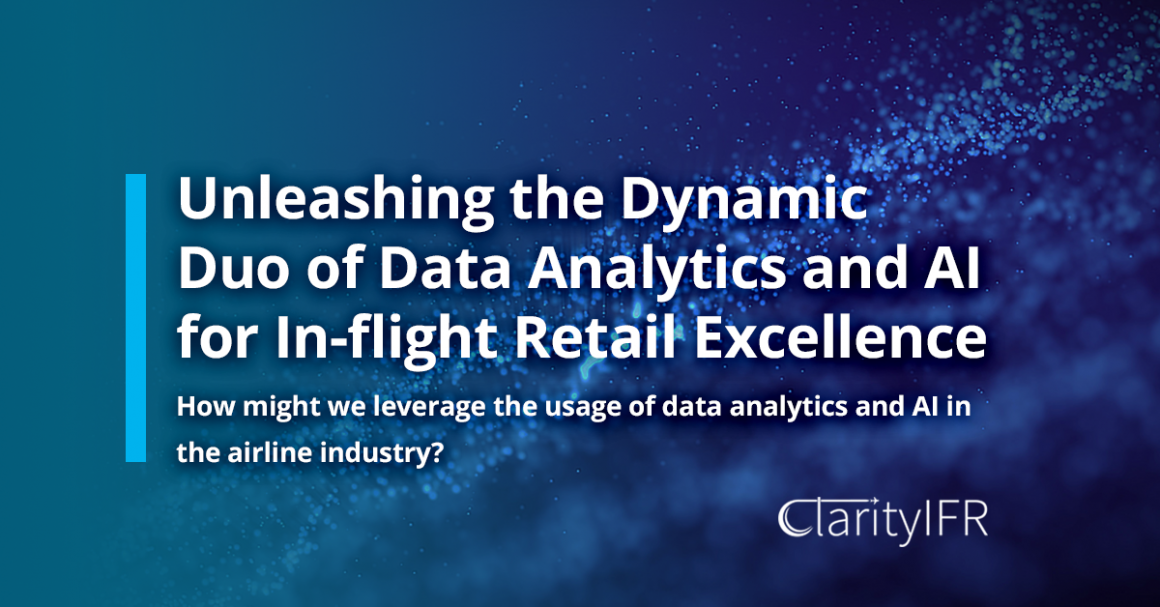Airlines are laser-focused on bettering the customer experience, so how might we leverage the usage of data analytics and artificial intelligence (AI) in this industry?
Acknowledging the indispensable role of data in business, the industry is now eagerly embracing AI, recognising its potential to unlock new opportunities and elevate productivity across all industries.
During 2024, businesses are looking to embrace the potential generative AI brings to the table, envisioning a future where efficiency is paramount, and the possibilities with data are limitless.
The impact of AI has particularly influenced the retail sector, and it’s safe to assert that airlines should be able to think and act like retailers from this point onward. The adoption of AI and data-centric models has proven instrumental in enhancing operational efficiency, elevating customer experience, and maintaining a competitive edge.
One of the most consistent themes in the industry is about driving innovation in the digital age – the role of AI in generating new ancillary revenues and enriching the passenger experience. The ability of AI to optimise operations at every level stands out as a driver of change in the industry, steering it towards a future where in-flight retail becomes a dynamic and evolving landscape.
Paired with data analytics, AI forms a dynamic duo challenging traditional retail models. This partnership goes beyond traditional practices, presenting an innovative approach that not only adapts to the needs of passengers but also anticipates them, ushering in a new era of personalised and seamless in-flight retail experiences.
As we delve into the duo that is data analytics and AI, the airline industry is poised for a revolution. It’s not just about flying from point A to B; it’s about creating a retail experience at 35,000 feet that aligns with the evolving expectations of our digital passengers.
AI-Centric Mentality
Airlines, now adopting an AI-centric mentality, can swiftly identify opportunities to intervene positively with the customer journey. The ability to turn a potentially poor experience into a delightful one is a game-changer. This approach enables organisations to react faster, maintaining a synchronized and aligned response that resonates with its passengers.
Our co-founder, Dr Pana Lepeniotis states “It’s essential to effectively integrate solutions that utilise AI to predict seat occupancy rates, analyse passenger profiles and their product preferences on each flight departure so that the last mile provider can respond dynamically to passenger demand.”
Read more: Harnessing AI for aviation’s Net Zero Ambitions
Predictive Analytics and Futuristic Projections
Retail and tourism sectors are expanding in numerous countries, fostering global connections, opening many opportunities for social and economic improvement. We must contribute to these sectors responsibly through the Right Product, Right Flight, Right Passenger approach.
The marriage of AI and data analytics allows airlines to unveil the art of predicting upcoming trends, customer behavioural shifts, and market dynamics. This foresight is crucial in the retail sector, where understanding the pulse of the market ensures staying ahead of the competition.
From choosing the right products to operating the right flights for the right passengers, this approach fosters sustainable growth and positive impacts on communities and in the global economy.
The Power of Personalisation
Personalisation is the key to unlocking customer satisfaction.
Pre-ordering is a prime example of how AI and data analytics can enhance the passenger experience. Passengers can leisurely browse through available selections, eliminating the rush and hassle associated with in-flight purchases. Pre-ordering opens a world of convenience for passengers and guarantees the availability of preferred products and meals, leading to higher customer satisfaction.
Fuelling Sustainability with AI
Beyond the realms of retail, AI is making significant strides towards a greener future. By optimising flight paths, minimising unnecessary weight by optimising inventory, and adopting eco-friendly practices, airlines are reducing their carbon footprint. This commitment to sustainability is not just an environmental responsibility but also a strategic move to appeal to the growing eco-conscious traveller demographic.
Optimising conversion rates through dynamic bar-sets and demand-aligned solutions empowers airlines to enhance profitability and deliver personalised passenger experiences.
This approach minimises fuel waste on unsold products, benefiting both the environment and the bottom line.
Our strategy is that of the 3Ps: Passengers, Planet and Profit. Passengers are the lifeblood of aviation, which is why it’s crucial to empower them with intuitive AI-enabled applications to allow for transact (pre-order, buy on board, buy at seat), predict and define their preferences and manage allergy requirements.
A clear, practical strategy that yields tangible results is crucial for instilling confidence and moving beyond endless projects. It enables businesses to meet challenges head on and ensures understanding across all stakeholders.
Like existing leading retailers worldwide, ClarityIFR’s vision is to put the customer at the centre; to provide airlines with a flexible offer and order solution that intelligently enables airlines to retail and distribute a broad choice of tailored offers to passengers. Orders can be fulfilled and delivered with ease on an integrated platform, resulting in value creation for each step of the process.
Related Articles
How Airlines are Adapting and Innovating to Meet Soaring Traveller Demands
Harnessing AI to Minimise the Environmental Impact of In-flight Retail
Creating Customer Value Through Dynamic Data-Driven Retailing

